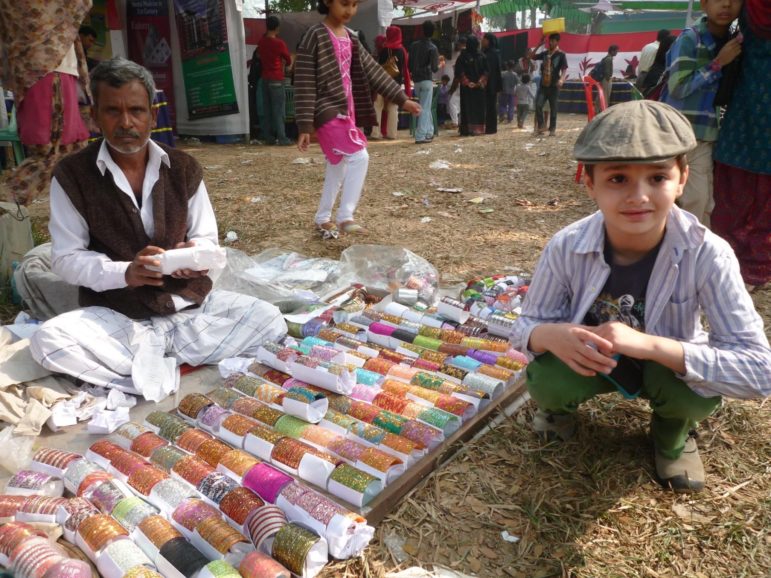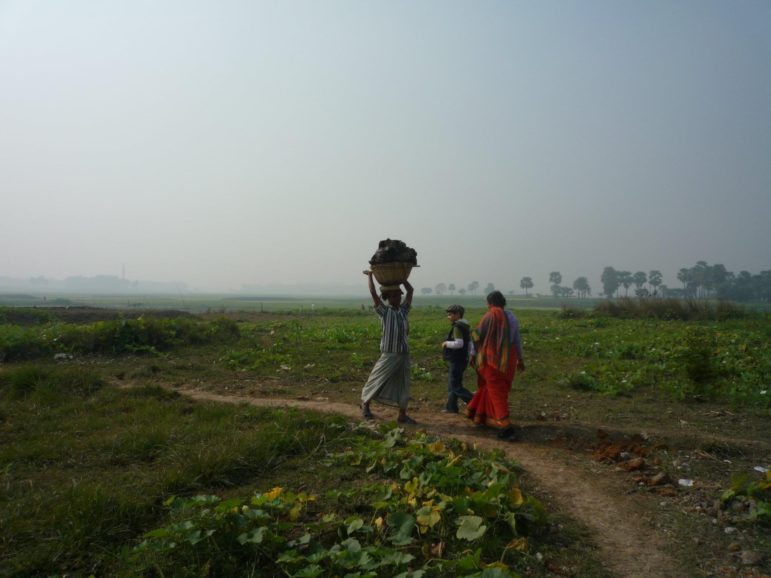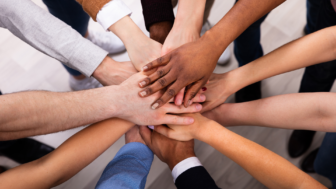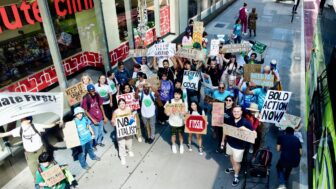By Zamir Ticknor
“What Am I?”

I remember wearing my bright, aqua blue Panjabi with exquisite designs on the collars– that my family bought when I was in my home country of Bangladesh– at my high school’s international night this year. While I was munching on delightful roshroshogulla, a Bangladeshi dessert, I vividly remember a tall, poised, Indian man awkwardly yet confidently strolling towards me; he then blatantly stared at my Panjabi and my light skin. I recall him posing the following question: “Are you even Bangladeshi? You’re too white to be a true Bangladeshi.” His thoughts along with my lingering enigmas in regards to my culture led me to question my identity solely because I am lighter than most Bangladeshis- this was not an enjoyable feeling then and that still remains true today.
When discussing the racial, ethnic, and cultural identity of individuals, it is professedly dormant for people to assume that identity can be summed up in one word: Black, white, Latinx, Jewish, Muslim, Bangladeshi, American, etc. The concept of identity is much more complex than that. In today’s world, people immigrate and move around quite often whether it’s because of economic hardship or political sovereignty; the world is not as sectioned off as it has been in the past. With advancements in technology, specifically in modes of transportation, the world has unquestionably become more accessible. With more diversity among inhabitants in certain areas, there will subsequently be a higher percentage of interracial relationships. So in future generations, there’ll be a higher percentage of multiracial individuals. According to the US Census Bureau in 2010, nine million Americans identify as two races or more, myself included.
Reminders from Multicultural Youth
The USA is a country where people from all over the globe come for better opportunities and seek to build a more fruitful life for themselves and their children. My mother did this to better her education from the developing country of Bangladesh. And as a biracial Bangladeshi-American, I would like to provide the reminders that this country is built on immigrants, refugees, asylees, international students, from every single corner of the world. Multicultural families create children with valid, multilayered identities, which are the future of race, and it is time that they are discussed in a serious, open-minded, and accepting manner.

Multiculturalist Stigmas
Biracial or multicultural identity is something that is not discussed sufficiently. This is partially because people often aren’t properly informed on how to ask a sensitive question about cultural identity. For many multicultural people, we’re familiar with the “what are you” question. I am sure that this question, when asked, makes you feel dehumanized and objectified as if you lack a valid and worthy identity. Aside from the fact that there’s a huge distinction between asking questions out of curiosity versus ignorance, being different doesn’t give bystanders a non-expiring free pass to always ask any cultural/identity-related question that comes to mind. It is most definitely different depending on the situation and the person. I myself welcome questions the majority of the time, but others may not appreciate constant questions. The topic of racial, cultural, and ethnic identity can be a sensitive one, but it’s absolutely necessary to be well-educated on racial relations and identity issues as a person of an increasingly diverse world.
So, let’s break the stigma. Let us spark dialogue about multicultural identity to our peers, our parents, and our society. Challenge your enigmas- question your culture in order to learn from it; this has led me to finally vocalize confidently that I am proud to be multicultural and biracial, and you should be proud of your identity. Without the tall, poised Indian man who posed a question to me, I believe that I would have never found my true self, and I would have never been able to undeniably write this message. Diverse cultural backgrounds are a gift, and though I may never wholly be a part of one culture, I get a taste of lifestyles that most people never do.

As a person who identifies as multicultural, I am a bridge for cultures to cross, continuing to attempt paving my way into an American society.
Instead of saying “I am stuck between two cultures and communities, and I feel like I don’t belong in either”, I have reframed my multiculturalism to: “I’m grateful I have the option to move between differing cultures and communities and choose values and beliefs that serve me.”
Multiculturalism in Activism
Some might argue that it’s not important to find our identity–molding you into a norm rather than an epitome: American instead of Bangladeshi and American. But, the language we use to describe ourselves frames our reality. My multicultural identity as a Bangladeshi-American shapes my perspective on the climate crisis, as I see the effects in my home country of Bangladesh and in the United States. My multicultural identity allows me to visualize and gain a personal perspective on environmental racism apparent in pipeline routes in Virginia, and even in predominantly POC communities/countries across the globe. My cultural roots in Bangladesh give me a somewhat personalized issue of the global refugee crisis, and have informed my lesson planning to a Syrian refugee I teach English to every week.
Being multicultural allows me to view the climate crisis in a multidimensional, personalized way. Instead of automatically boycotting fast fashion, my perspective has informed me of how the fast fashion industry may be the only way of supporting millions of people across the world, especially in my home country of Bangladesh in the huge textiles industry; if these people were to lose their jobs, where would they go? Being vegan also comes with privilege, bringing socioeconomic inequalities and cultural differences in the forefront of my mind, informed by my multicultural upbringing.
Identity matters. If only I knew more about what mine was, and I will, someday.







